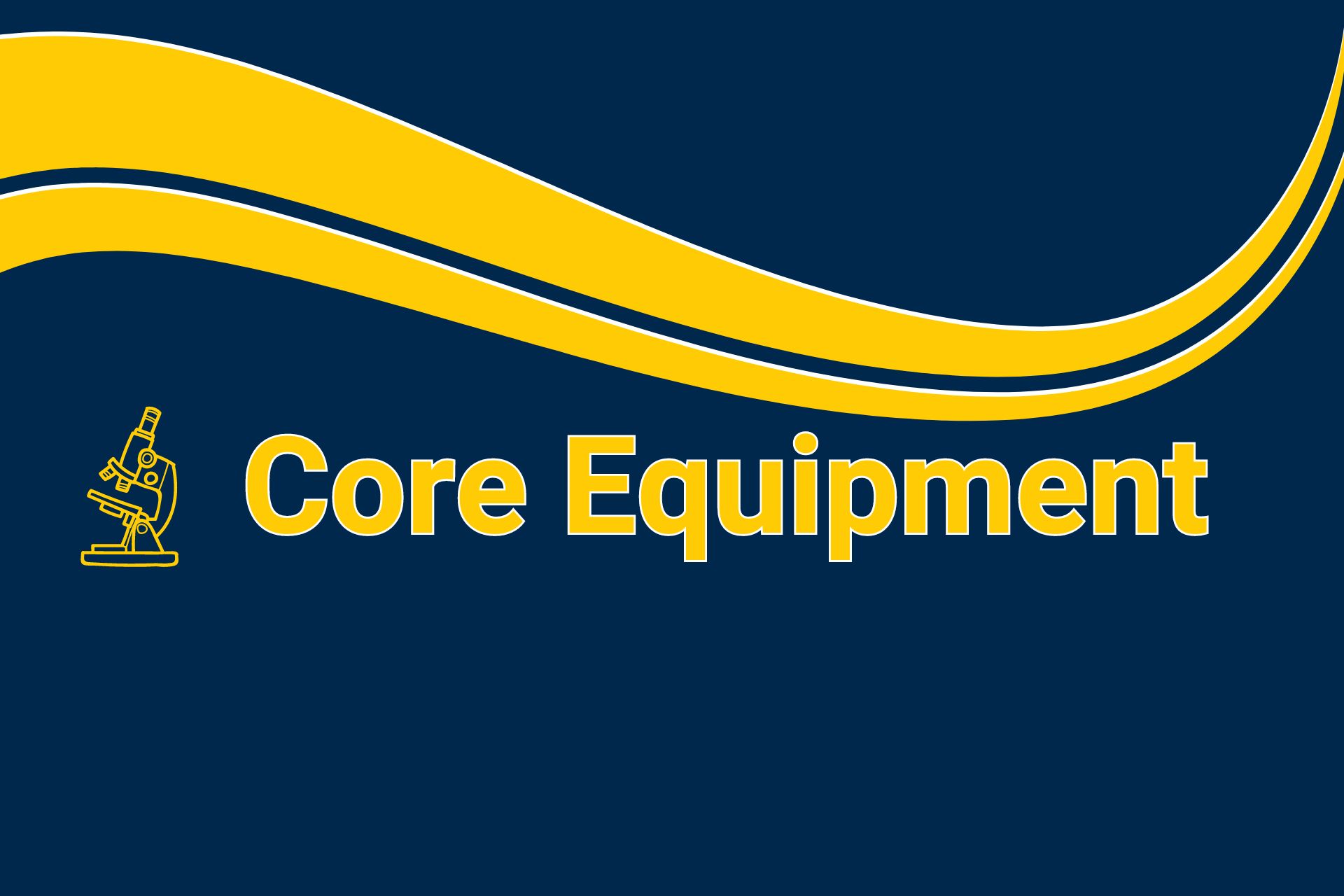The Biointerfaces Institute offers state-of-the-art equipment to its constituents, the UM research community, fellow academic institutions, and industry.
You must have a FOM account to use any of the BI core equipment. Sign up for FOM HERE.
Particle Characterization
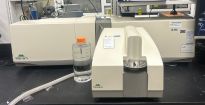 Equipment: Mastersizer 2000
Equipment: Mastersizer 2000Usage: particle size distribution by laser diffraction with Hydro 2000S (~0.02 μm -600 μm)
Manufacturer: Malvern
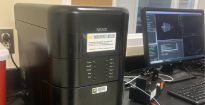 Equipment: Nanosight NS300
Equipment: Nanosight NS300Usage: particle size distribution and concentration by nanoparticle tracking analysis (~10 nm -1 μm)
Manufacturer: Malvern
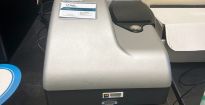 Equipment: Zetasizer Nano ZSP
Equipment: Zetasizer Nano ZSPUsage: particle size distribution by dynamic light scattering (~0.3 nm -10 μm) and zeta potential measurement
Manufacturer: Malvern
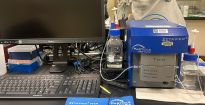 Equipment: Zetaview TWIN
Equipment: Zetaview TWINUsage: particle size distribution and concentration by nanoparticle tracking analysis (15 nm -1 μm) and zeta potential measurement
Manufacturer: ParticleMetrix
Thermal Characterization
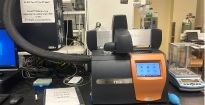 Equipment: Discovery 2500 Differential Scanning Calorimeter (DSC)
Equipment: Discovery 2500 Differential Scanning Calorimeter (DSC)Usage: thermal properties of materials, melting, glass transition temperatures, etc.
Manufacturer: TA Instruments
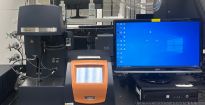 Equipment: Discovery 5500 Thermal Gravimetric Analysis (TGA)
Equipment: Discovery 5500 Thermal Gravimetric Analysis (TGA)Usage: degradation behavior of materials
Manufacturer: TA Instruments
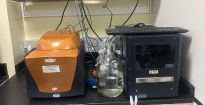 Equipment: Nano DSC
Equipment: Nano DSCUsage: quantifies biomolecule thermal stability by measuring thermal changes in biomolecules, like proteins, occurring during structural changes
Manufacturer: TA Instruments
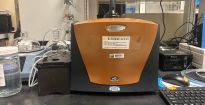 Equipment: Nano ITC
Equipment: Nano ITCUsage: quantifies enthalpy or entropy of reactions, for example, protein-protein interactions, to determine binding constant (Ka) and reaction energy properties
Manufacturer: TA Instruments
Materials Characterization
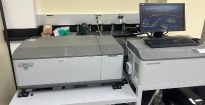 Equipment: Circularly Polarized Luminescence spectrometer (CPL-300)
Equipment: Circularly Polarized Luminescence spectrometer (CPL-300)Usage: excited chiral materials characterization (range 250 nm –850 nm)
Manufacturer: Jasco
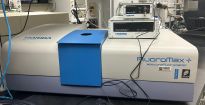 Equipment: FluoroMax Plus spectrofluorometer
Equipment: FluoroMax Plus spectrofluorometerUsage: fluorescent materials characterization with near IR detector (range 185 nm-1550 nm)
Manufacturer: Horiba
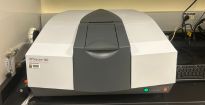 Equipment: IR-Tracer100 Fourier-Transform Infrared (FTIR)
Equipment: IR-Tracer100 Fourier-Transform Infrared (FTIR)Usage: materials characterization in the infrared (range 400 1/cm-4000 1/cm)
Manufacturer: Shimadzu
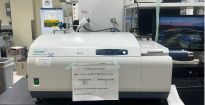 Equipment: J-815 Circular Dichroism (CD) spectrometer
Equipment: J-815 Circular Dichroism (CD) spectrometerUsage: chiral materials or secondary structures of proteins (range 163 nm -900 nm)
Manufacturer: Jasco
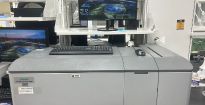 Equipment: J-1700 (CD) spectrometer
Equipment: J-1700 (CD) spectrometerUsage: chiral materials or secondary structures of proteins (range 163nm-2500nm)
Manufacturer: Jasco
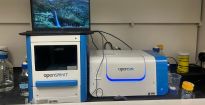 Equipment: OpenSPR-XT surface plasmon resonance (SPR)
Equipment: OpenSPR-XT surface plasmon resonance (SPR)Usage: surface plasmon resonance (SPR) instrument that can perform automated label-free interaction analysis of biomolecules
Manufacturer: Nicoya
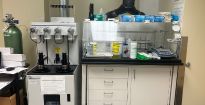 Equipment: Porosimeter Autopore V (Model: 9620)
Equipment: Porosimeter Autopore V (Model: 9620)Usage: material porosity measurement by mercury intrusion for pore size distribution, pore volume etc. (pore size ~0.003 μm -500 μm)
Manufacturer: Micromeritics
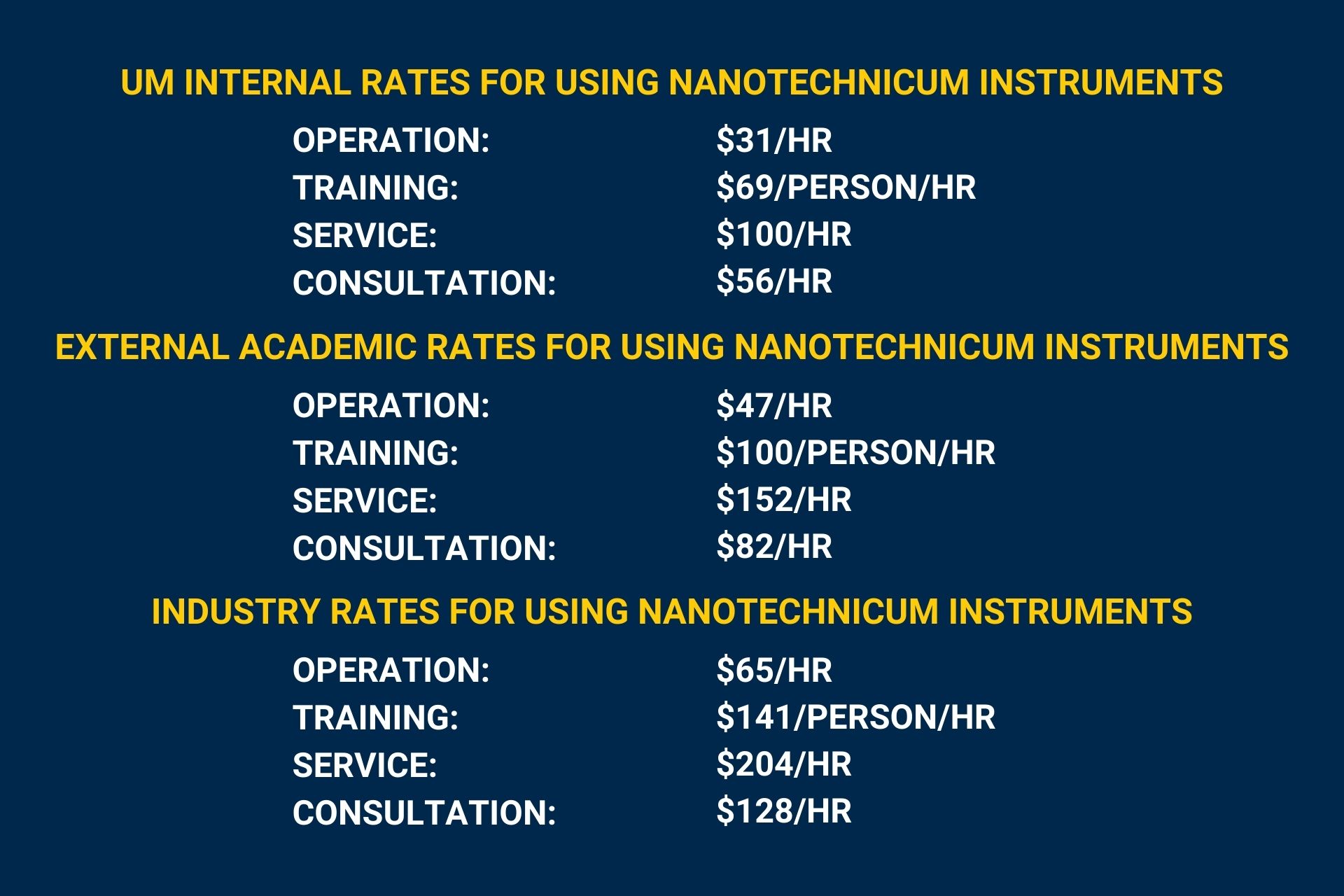
Training Requirements for Core Equipment
Training for each piece of equipment is required. Sign up for TRAINING HERE.
Sign Up for FOM
You must have a FOM account to use any of the BI core equipment. Sign up for FOM HERE.
Guidelines for Publications and Acknowledgments
Publications with results obtained at the Biointerfaces Institute Nanotechnicum may state “The authors acknowledge the financial support of the University of Michigan College of Engineering, the College of Pharmacy, Dental School and the Medical School and the Biointerfaces Institute for use of the instruments and staff assistance.”
